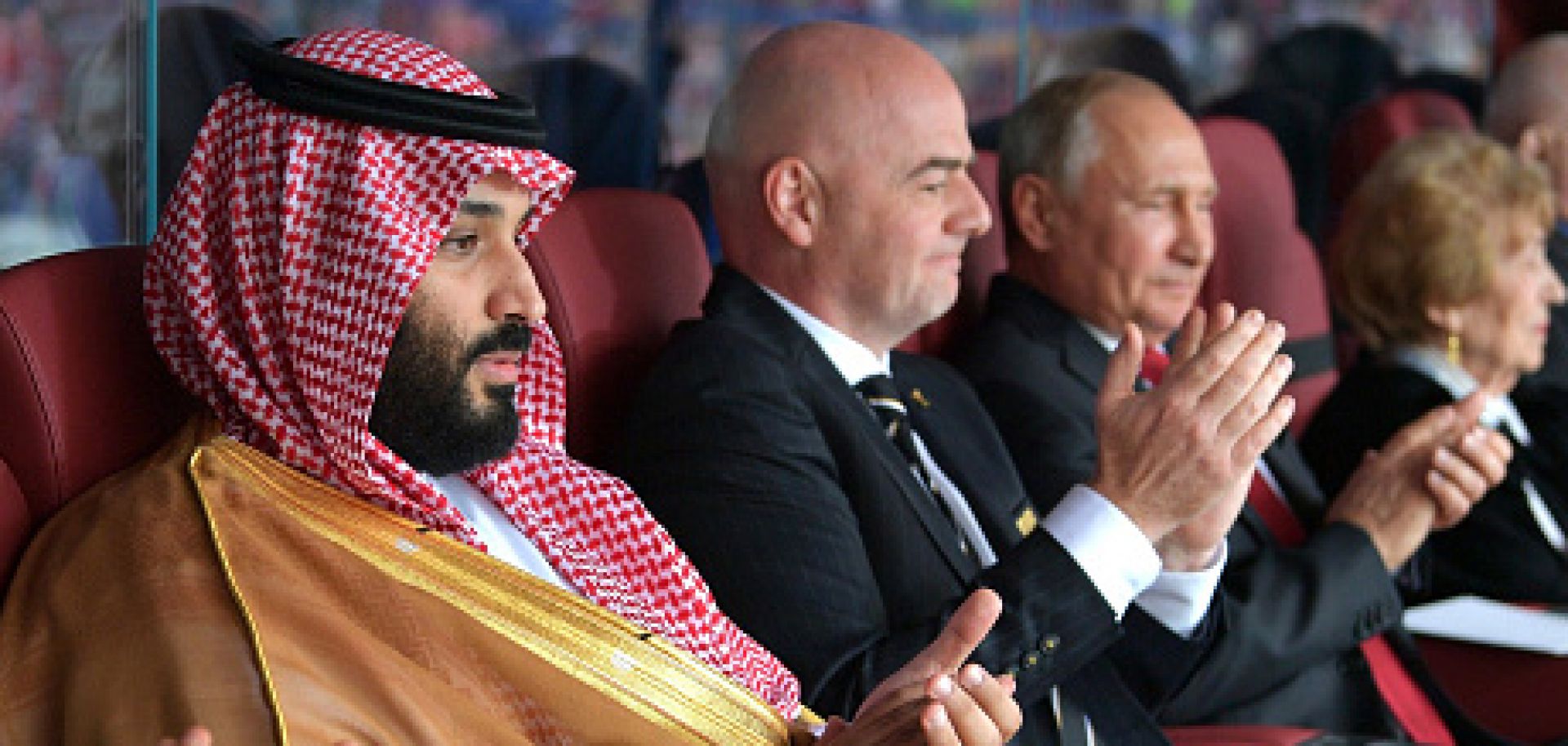GLOBAL PERSPECTIVES
In the World Cup, 'Nationality' Is a Relative Term

Jun 25, 2018 | 08:00 GMT

Saudi Crown Prince Mohammed bin Salman (L) and Russian President Vladimir Putin (R) watch their national teams square off in the first match of the 2018 FIFA World Cup in Moscow on June 14.
(Pool/Getty Images)
Highlights
- Nearly 10 percent of the athletes competing in the 2018 FIFA World Cup are playing under the flag of a nation they weren't born in.
- The issue seems to be drawing more attention in the current tournament than it has in years past as athletes born in France or Germany, for example, compete for countries from which their parents or grandparents emigrated.
- Despite the buzz, the practice is not a recent phenomenon and traces back at least to the 1934 World Cup in Italy.
Subscribe Now
SubscribeAlready have an account?
